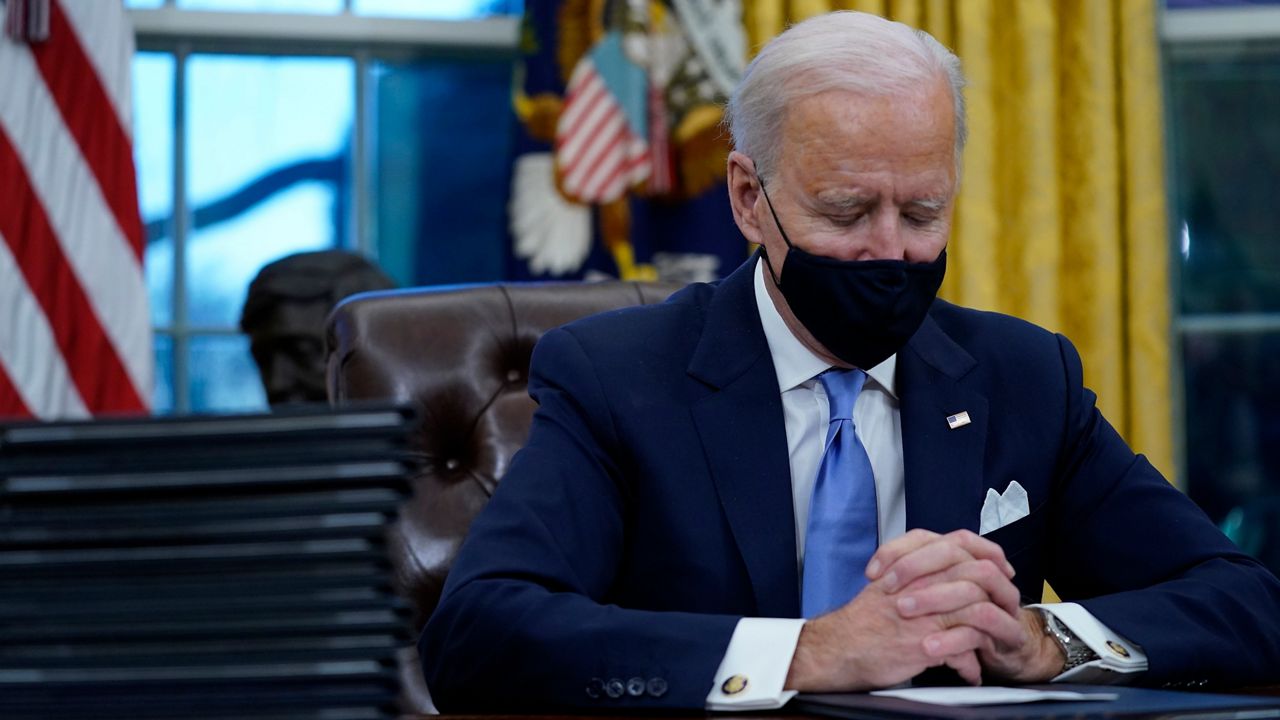President Joe Biden on Monday formally reinstated COVID-19 travel restrictions on non-U.S. travelers from Brazil, Ireland, the United Kingdom and 26 other European countries that allow travel across open borders.
The restrictions go into effect Tuesday.
White House press secretary Jen Psaki said South Africa was added to the restricted list because of concerns about a variant of the virus that has spread beyond that nation.
"This isn’t the time to be lifting restrictions on international travel," Psaki said.
The prohibition Biden is reinstating suspends entry to nearly all foreign nationals who have been in any of the countries on the restricted list at any point during the 14 days before their scheduled travel to the U.S.
Top U.S. infectious disease expert Dr. Anthony Fauci called Biden’s decision to reinstate the travel restrictions – and add South Africa to the list – “prudent” in a round of television interviews Monday.
"We have concern about the mutation that’s in South Africa," Fauci told CBS News. "We’re looking at it very actively. It is clearly a different and more ominous than the one in the U.K., and I think it’s very prudent to restrict travel of noncitizens."
Dr. Fauci acknowledged Monday that the more highly contagious coronavirus variant first detected in England also appears to be more deadly than the predominant strain that has spread throughout the world.
Fauci’s comments on NBC’s “Today” show came three days after British Prime Minister Boris Johnson said there is "some evidence" the variant "may be associated with a higher degree of mortality." Johnson’s chief scientific adviser, however, stressed Friday there was still “a lot of uncertainty around these numbers.”
When asked by anchor Savannah Guthrie how concerning the variant is, citing the UK's evidence that it may be more deadly, Fauci replied, "taking a look at the preliminary data that the U.K. scientists have analyzed, I’m pretty convinced that there is a degree of increase in seriousness of the actual infection, which we really have to keep an eye on."
Biden revered an order from President Donald Trump in his final days in office that called for the relaxation of the travel restrictions as of Tuesday. Trump’s move was made in conjunction with a new requirement from the Centers for Disease Control and Prevention that all international travelers to the U.S. obtain a negative test for COVID-19 within three days of boarding their flight.
Last week, Biden expanded on the CDC requirement and directed that federal agencies require international travelers to quarantine upon arrival in the U.S. and obtain another negative test to slow the spread of the virus. Those requirements also go into effect Tuesday.
The 26 European countries impacted by reinstatement of the ban are part of the border-free Schengen zone. They include Austria, Belgium, Czech Republic, Denmark, Estonia, Finland, France, Germany, Greece, Hungary, Iceland, Italy, Latvia, Liechtenstein, Lithuania, Luxembourg, Malta, Netherlands, Norway, Poland, Portugal, Slovakia, Slovenia, Spain, Sweden, and Switzerland.
Biden’s team had announced that he would reimpose the travel restrictions, but the addition of South Africa to the restricted travel list highlights the new administration’s concern about mutations in the virus.
The variant detected in South Africa has not been discovered in the United States, but another variant – originally discovered in the United Kingdom – has been detected in several states.
Fauci said there is “a very slight, modest diminution” of the effectiveness of COVID-19 vaccines against those variants but “there’s enough cushion with the vaccines that we have that we still consider them to be effective against both the UK strain and the South Africa strain.”
But he warned that more mutations are possible and said scientists are preparing to adapt the vaccines if necessary.
“We really need to make sure that we begin, and we already have, to prepare if it’s necessary to upgrade the vaccines,” Fauci said. “We’re already taking steps in that direction despite the fact that the vaccines we have now do work.”
The Associated Press contributed to this report.
